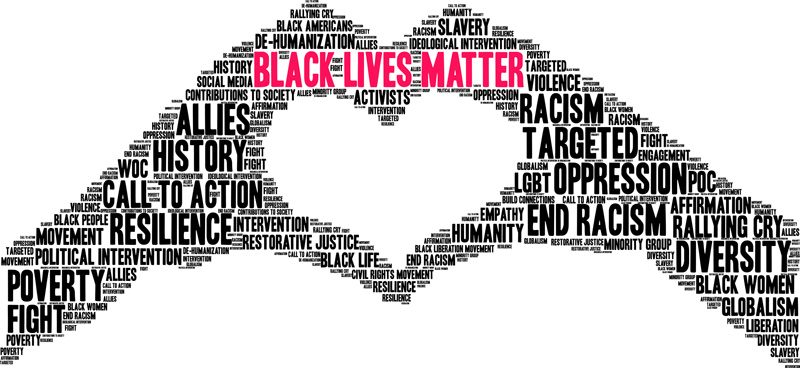 You’ll read that the opinions of those we interviewed are not monolithic—and there’s no one way to approach eradicating racism (or sexism, or any other -ism for that matter). But the way that they experience racism in our communities and the business world, including our own industry, is very real. Racism is indeed a national emergency.
You’ll read that the opinions of those we interviewed are not monolithic—and there’s no one way to approach eradicating racism (or sexism, or any other -ism for that matter). But the way that they experience racism in our communities and the business world, including our own industry, is very real. Racism is indeed a national emergency.
We’ve all heard scenarios like this: Held at gun point in his driveway for running a stop sign. Enduring frequent police stops because he’s driving a car “too nice for a teenager.” Being told they’re “not like those people” or “I had no idea you were so articulate.” Being told “you have strong credit for a Black man” but being denied credit anyway despite owning and running a successful business. Assuming they’re an employee rather than the owner. But these aren’t nameless, faceless incidents. This is racism, and all of these are the experiences of our peers, our trusted affiliates, the people you share a drink with at parties or sit side by side with at association meetings, and even our employees. This is happening to our friends.
This article isn’t intended to shame or guilt anyone. This is about growth, and more importantly, about furthering the discussion. We hope that you’ll read with an open mind and keep the dialogue going.
What are your thoughts on the Black Lives Matter movement?
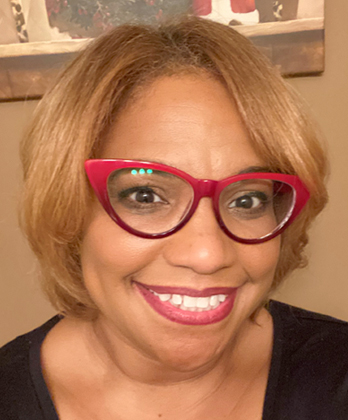 May Adrine
Maya Adrine of Golden Limousine: I am heartened when I see people whom I would not normally expect to say “OK guys, let’s all take a breath and see what the root of the problem is.” The part that disheartens me is that so many generalizations are being made, especially on social media: There’s a lot of talk about “they” are doing this or “they” are doing that. Pretty much everyone was up in arms after George Floyd saying that we needed to talk about this as a society. But then the protests got hijacked in some cases by people who had a different agenda or understanding of how change needs to happen, leading to violence and looting. Then that allows people who are uncomfortable with the initial problem to say “Oh, well they messed that up, now I can’t hear what they have to say.” On the flip side, that allows Black people to say, “They always stick together.” The “they” becomes very general, and then the focus is on the scary “they” rather than fixing the problems.
May Adrine
Maya Adrine of Golden Limousine: I am heartened when I see people whom I would not normally expect to say “OK guys, let’s all take a breath and see what the root of the problem is.” The part that disheartens me is that so many generalizations are being made, especially on social media: There’s a lot of talk about “they” are doing this or “they” are doing that. Pretty much everyone was up in arms after George Floyd saying that we needed to talk about this as a society. But then the protests got hijacked in some cases by people who had a different agenda or understanding of how change needs to happen, leading to violence and looting. Then that allows people who are uncomfortable with the initial problem to say “Oh, well they messed that up, now I can’t hear what they have to say.” On the flip side, that allows Black people to say, “They always stick together.” The “they” becomes very general, and then the focus is on the scary “they” rather than fixing the problems.
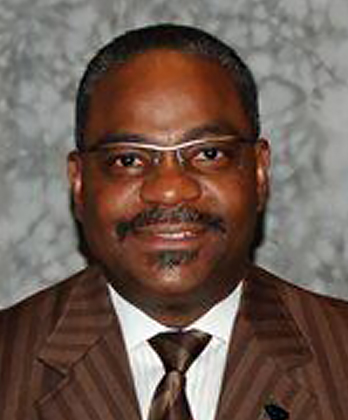 Darrell Anderson
Darrell Anderson of A-National Limousine: Colin Kaepernick was demonized and lost his job in the NFL for protesting in the most peaceful way you could do it. He was blackballed because the powers that be essentially didn’t like him challenging the structure that benefitted them. But four years later, they’re saying they get it, and they were wrong. We’ve been saying it all this time, but they weren’t ready to receive it. Just like the march on Selma, it took until Bloody Sunday for the government to get it. We can do all these peaceful protests, but sometimes it takes people getting hurt or killed before it hits home. Why does it have to go to that extreme? This is something we should all want to have a conversation about. BLM is an extension of movement that started generations ago, so when people say that they have nothing to do with it—yes, they do. We all do.
Darrell Anderson
Darrell Anderson of A-National Limousine: Colin Kaepernick was demonized and lost his job in the NFL for protesting in the most peaceful way you could do it. He was blackballed because the powers that be essentially didn’t like him challenging the structure that benefitted them. But four years later, they’re saying they get it, and they were wrong. We’ve been saying it all this time, but they weren’t ready to receive it. Just like the march on Selma, it took until Bloody Sunday for the government to get it. We can do all these peaceful protests, but sometimes it takes people getting hurt or killed before it hits home. Why does it have to go to that extreme? This is something we should all want to have a conversation about. BLM is an extension of movement that started generations ago, so when people say that they have nothing to do with it—yes, they do. We all do.
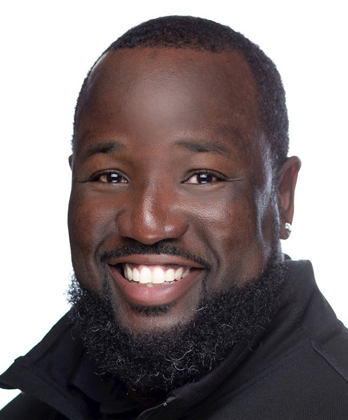 Tamekius Breland
Tamekius Breland of Certified Worldwide Transportation: The first time Black Lives Matter came around, you heard people say it, but it was more lip service. This time around just feels different—probably because everyone is home and they’re forced to acknowledge it. People are realizing that there’s something to this. I think we take for granted how far things have come. Speaking to my mother and grandmother, they were just happy to sit at a bar like everyone else. The events of the past few months have shown us that we still have work to do. Thank God for cameras—people get to see what is really happening with their own eyes. That’s real. Black Lives Matter is about our lives mattering to more than just us.
Tamekius Breland
Tamekius Breland of Certified Worldwide Transportation: The first time Black Lives Matter came around, you heard people say it, but it was more lip service. This time around just feels different—probably because everyone is home and they’re forced to acknowledge it. People are realizing that there’s something to this. I think we take for granted how far things have come. Speaking to my mother and grandmother, they were just happy to sit at a bar like everyone else. The events of the past few months have shown us that we still have work to do. Thank God for cameras—people get to see what is really happening with their own eyes. That’s real. Black Lives Matter is about our lives mattering to more than just us.
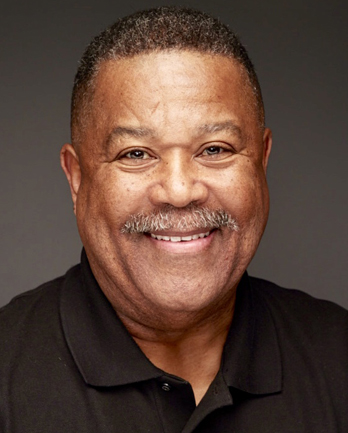 Maurice Brewster
Maurice Brewster of Mosaic Global Transportation: Protests have always been an important way to get across deep-rooted, heart-wrenching feelings that are just not right in our society. It’s a part of our First Amendment rights. I’m excited that the protests, when peaceful, have started to evoke change. When I see the people who are protesting, starting with George Floyd’s murder, it’s not just Black people—and it’s not just Americans. This event has sparked what I feel is a catalyst for at least waking up America that things aren’t equal. And if we want to live in a world where things are equitable and fair, where the life of George is just as valuable as Samuel or Marcus or Jose, then we need to protest. We’re tired and we’re not taking it anymore.
Maurice Brewster
Maurice Brewster of Mosaic Global Transportation: Protests have always been an important way to get across deep-rooted, heart-wrenching feelings that are just not right in our society. It’s a part of our First Amendment rights. I’m excited that the protests, when peaceful, have started to evoke change. When I see the people who are protesting, starting with George Floyd’s murder, it’s not just Black people—and it’s not just Americans. This event has sparked what I feel is a catalyst for at least waking up America that things aren’t equal. And if we want to live in a world where things are equitable and fair, where the life of George is just as valuable as Samuel or Marcus or Jose, then we need to protest. We’re tired and we’re not taking it anymore.
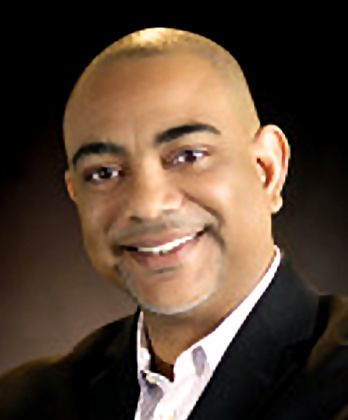 Khari Dickson
Khari Dickson of Divine Chariots Limousines: I can understand why people would think that what they’re seeing in the media is just an isolated incident or things that don’t really happen. Yes, it doesn’t happen in your life and in your normal, but for us, I’ve been dealing with this my entire life. I know people don’t want to believe it, but had George Floyd not been murdered on TV, then we still would be screaming for help.
Khari Dickson
Khari Dickson of Divine Chariots Limousines: I can understand why people would think that what they’re seeing in the media is just an isolated incident or things that don’t really happen. Yes, it doesn’t happen in your life and in your normal, but for us, I’ve been dealing with this my entire life. I know people don’t want to believe it, but had George Floyd not been murdered on TV, then we still would be screaming for help.
I was encouraged by comments on Facebook that made me think that people are getting it. I hate to say it, but it’s not the typical reaction these things normally get. I don’t believe destroying property is the answer either. I so badly want this to end, and it’s frustrating that people have hijacked the protests just to destroy stuff. However, while it’s great that people are talking about social injustice and bringing it to the forefront, my biggest challenge has always been now what? I wish I had the answer.
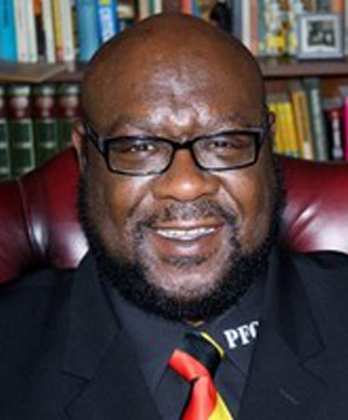 Frank Lacks Jr.
Frank Lacks Jr. of PFC Transportation: People need to understand how Black Lives Matter started. It was started seven years ago by three community organizers and civil rights activists—Alicia Garza, Khan Cullors, and Opal Tometi—in response to the acquittal of George Zimmerman for the shooting death of Trayvon Martin. It began with a simple hashtag—#BlackLivesMatter—before people began taking to the streets to protest against inequality and violence. The phrase had first been used in a Facebook post by Alicia Garza called “A Love Letter to Black People” following Zimmerman’s acquittal in 2013, before it was shared with the hashtag and a movement was borne online. Once social media got ahold of it, then you had people crying ‘all lives matter.’ Look at how many Black people have been killed by police since then. We just want people to see that this is happening in America. Of course those lives matter—they already do. Black Lives Matter as a movement belongs to us—you don’t get to take that away from us.
Frank Lacks Jr.
Frank Lacks Jr. of PFC Transportation: People need to understand how Black Lives Matter started. It was started seven years ago by three community organizers and civil rights activists—Alicia Garza, Khan Cullors, and Opal Tometi—in response to the acquittal of George Zimmerman for the shooting death of Trayvon Martin. It began with a simple hashtag—#BlackLivesMatter—before people began taking to the streets to protest against inequality and violence. The phrase had first been used in a Facebook post by Alicia Garza called “A Love Letter to Black People” following Zimmerman’s acquittal in 2013, before it was shared with the hashtag and a movement was borne online. Once social media got ahold of it, then you had people crying ‘all lives matter.’ Look at how many Black people have been killed by police since then. We just want people to see that this is happening in America. Of course those lives matter—they already do. Black Lives Matter as a movement belongs to us—you don’t get to take that away from us.
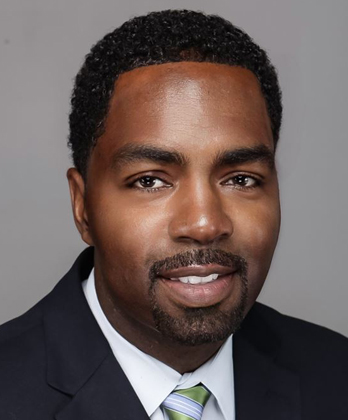 Travis Latham
Travis Latham of Fellowship Fleet Limousine and Bus: It’s simple: It means that Black lives DO matter. It’s not that anyone else’s life doesn’t matter. If you look at the statistics, whether it’s police brutality, health, income equality, or real estate transactions, Black people are always at the bottom. Take prison reform for an example: Black people make up 12-14 percent of the general population, yet they overwhelmingly make up the prison population. It’s not because Black men are inherently evil. It’s because there are laws and regulations that allow police to utilize certain rules—or not use certain rules—to target Black people. If I’m pulled over, then I should be treated the same as you being pulled over, but I know for a fact it’s not. I could never curse at a police officer and not expect a billy club to be smashed across my face. If I go into a bank, the loan officer shouldn’t be able to redline my application due to my race, where I live, or my last name, and all of that happens. It has to stop.
Travis Latham
Travis Latham of Fellowship Fleet Limousine and Bus: It’s simple: It means that Black lives DO matter. It’s not that anyone else’s life doesn’t matter. If you look at the statistics, whether it’s police brutality, health, income equality, or real estate transactions, Black people are always at the bottom. Take prison reform for an example: Black people make up 12-14 percent of the general population, yet they overwhelmingly make up the prison population. It’s not because Black men are inherently evil. It’s because there are laws and regulations that allow police to utilize certain rules—or not use certain rules—to target Black people. If I’m pulled over, then I should be treated the same as you being pulled over, but I know for a fact it’s not. I could never curse at a police officer and not expect a billy club to be smashed across my face. If I go into a bank, the loan officer shouldn’t be able to redline my application due to my race, where I live, or my last name, and all of that happens. It has to stop.
I am encouraged by the protests, specifically because there is participation by non-Black people in the movement. I think the only way that things are going to change in this country is if the oppressed and the oppressor address their own actions.
Are you seeing real change in corporate America?
DA: Even as some corporations are talking now about diversity or have diversity programs, they haven’t been serious about it. It ends up being a dog-and-pony show where the “diversity hire” doesn’t have any clout to help make those necessary changes. As another example, why is it when our city hosts the Super Bowl that businesses in our area, especially minority-owned businesses, weren’t first in line to get the work?
I reached out to the leadership of Delta Airlines after CEO Ed Bastian made a commitment in support of Black Lives Matter. What does that commitment mean? Does it mean that there will be more minority opportunities? Does it mean that they’re going to spend more of that money with minorities? Wouldn’t it be something if they painted one of their aircraft with the Black Lives Matter message? Or will this all be political correctness? We’ve been here before; we’ve been told all of this before. Will this time be action?
Once you educate yourself, and see the impact of racism happening around you, it will have a broader impact on all of us. You can’t just throw in some guidelines on diversity and stop there. You have to constantly ask, “Where did we fall short?” It doesn’t mean you give up; it means you work harder to accomplish the goals you set.
TB: More and more companies are stepping up and saying “Black lives DO have to matter and we have to better.” If there’s any silver lining to COVID it’s that, and those who aren’t willing to embrace it are going to feel the hurt financially. I do think the companies that are being transparent about the changes they are trying to make is a positive, but there has to be a commitment to it—they can’t go and fire all these people of color after the protests end. Luckily there are enough people out there who recognize it and don’t want this racism to continue that we hopefully will be able to move light-years ahead of where we were even 40-50 years ago.
MB: Corporate America can no longer cater to one demographic. It’s a melting pot of people who are protesting and rooting for this change—and they represent billions of dollars. If they feel that a corporation or an organization is not representing diversity and inclusion, then they will spend their dollars somewhere else. That is powerful.
FL: I am optimistic that things are changing—this has been going on too long. There are a lot of important and influential people backing Black Lives Matter. The NFL is backing it, the NBA is backing it, MLB is recognizing—those are large organizations that spend a lot of money. If those organizations are behind it, then something has to be right about this movement. They’re not just saying black lives matter to say it. Things are going to have to change—powerful people like athletes aren’t going to stand for it. People look up to athletes. And even those who claim they’re going to boycott football; you know that’s not true. They’re going to be playing their fantasy leagues like they do every year.
This also shouldn’t be political. The movement returned to national headlines and gained further international attention during the global George Floyd protests in 2020 following the killing of George Floyd by Minneapolis police officer Derek Chauvin. An estimated 15 million to 26 million people participated (though not all are “members” of the organization) in the 2020 Black Lives Matter protests in the United States, making it one of the largest movements in U.S. history. The movement has advocated to invest directly into Black communities and alternative emergency response models.
The popularity of Black Lives Matter has rapidly shifted over time. Whereas public opinion on Black Lives Matter was net negative in 2018, it grew increasingly popular through 2019 and 2020. A June 2020 Pew Research Center poll found that the majority of Americans, across all racial and ethnic groups, have expressed support for the Black Lives Matter movement. It’s sparked protests all over the world. None of this is going to happen fast, but I know it has to move things.
What are the symptoms of racism?
DA: We all didn’t begin at the same starting line. If you make it a fair race where everyone starts at the same point, then the outcome will be very different. Then the most talented, the hardest-working, and the most prepared will finish the race on top, not those who were given the head start.
Slavery was protected because of the free labor, and we’re still feeling that impact today. If I didn’t have to pay for labor, I’d have tremendous profits. Prisons are the new forms of free labor, and look at the largest population that is incarcerated. Or see how hard Uber and Lyft are fighting to keep their drivers as independent contractors. Why? Their bottom line.
Dr. King didn’t enjoy the benefits of what he was fighting for, but the people after him did. It’s the same thing now—we’re fighting for a better future for those who follow us, and we all have a fiduciary responsibility to this. This isn’t a country for one set of people, but for everyone. Until we reach that, then we have work to do. I understand why people respond to violence. I don’t condone it, but I understand that people are sick and tired of being sick and tired. But it doesn’t have to be that way.
MA: Here’s an example: Some kid had a toy rifle on the soccer fields and someone called the police. The police, who have known [Golden Limousine owner] Sean Duval for years and years as the president of the soccer club and the owner of a successful business, have him on the ground in handcuffs while they’re trying to figure out [that it’s not him]. Anyone who knows Sean would say, “Oh my gosh, that happened to you?” and then the conversation hits home. Sometimes it truly is a function of skin color or profiling, not someone being disrespectful to the police or doing something wrong. But until people are able to make that connection to those they know and respect, then it’s hard to fathom that.
TB: Systemic racism may not be as readily obvious to some, usually those privileged by the system. Black-on-Black crime is a symptom of racism. Underserved, underprivileged communities don’t have the same support as white communities when it comes to money, education, and healthcare. People will ask, “Why aren’t you outraged about Black-on-Black crime,” like they think we’re sitting around celebrating it. No, we’re not. There are so many programs in Black communities that are already trying to stop that violence. Income disparity, poverty at play, lack of health care, access to education—that desperation sometimes ends in gunplay and death, but it’s something the Black community is trying to fix. If all of those other things are better first, then there’s hope. Stop judging. We just want to be on the same plane as everyone else, and to be included. If America would truly care about all lives, Black lives would not still be seen as less than.
KD: We have to work twice as hard to get what we have because of stereotypes about Black men and Black-owned companies. I was told by a banker that a Black man having strong credit is very unusual—despite that, plus having a successful business, good revenue, and a relationship with the bank, I was denied the line of credit because I’m the sole proprietor and told they “can’t get the money from someone else if you default.”
FL: Everyone has a little racism in them. I knew of racism, I’ve experienced a little racism, but nothing like we’re seeing now—I just moved back to the states in 2009 after living in Germany and it was different. You didn’t see statues of Hitler in Germany like the statues of Confederate leaders here, or the Confederate flag. Some really do appreciate that history, but others know what they’re using those symbols for, and it’s to sow hatred. Maybe they need to be in a museum. They’re celebrating it, and it takes a lot to hate somebody. Why do they want to open up those wounds? We all have that freedom to speak, but what you say matters.
TL: I feel like police brutality is rampant in Chicago, and it crosses racial lines. Too often the only time a Black police officer will speak out against it is when it happens to a member of their family or when they’re out of uniform. That disturbs me because they’re part of that system. There are no consequences to those actions because victims are paid by a general fund that is taxpayer money, not from the cop’s pension or own pocket. Then the cycle repeats. That’s one of the ways we need to address change.
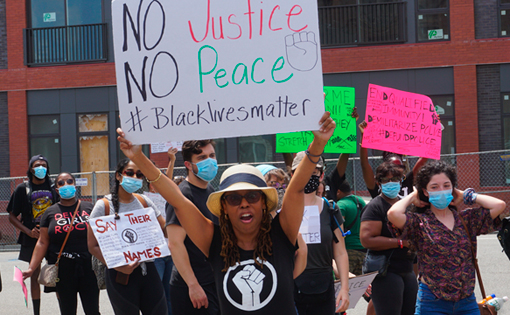 How does racism impact our industry?
How does racism impact our industry?
MA: These protests are unfortunately dividing the industry among political lines, which is devastating and exactly what we don’t need to do—especially when we people from all backgrounds are participating in this industry on some level. The owner of a $20M company probably will not have the same political and social viewpoints as his detailer who is trying to support a family of five on their salary. When we’re so polarized, we don’t make room to be human to the people who work for us, especially when those people are the scary “theys.”
I’ve felt and seen subtle racism in my 13 years in the industry. Sean [Duval] and I often talk about our experiences of being the only Black person in the room or serving on a board. It’s one thing to be a Black person in the industry, but being a Black woman adds another layer. There are certain stereotypes about Black women being angry, or uneducated, or even assumptions about our body type or sexuality.
DA: When I started out in the business, I didn’t have access to capital like my white counterparts. I couldn’t set up my operation in the same community that they could. Certain corporations weren’t willing to do business with me. There were times when I had to have a white person represent my company just to get a seat at the table. I don’t ever want to feel like I’m three-fifths of a person; I want to feel just as equal as any other man.
That’s happening now. During this pandemic, minority-owned companies are being left out faster than their white counterparts. Banks will give another operator a six-month deferral but a minority operator with the same criteria only 90 days.
TB: We as Black people know that we have to work 10 times as hard as anyone else just to get to the first step. We have to overcome all of the stereotypes and hurdles. You kind of build your steps from there, but getting to that first step is tough. The ignorance in this industry baffles me at times—and it’s not just my white counterparts. The model is our industry is that the bigger operations, which are mostly owned by white people, send business to the smaller operators. The attitude tends to be “You want my business, what are you going to do for it?” It takes a while going to the shows to prove that your business is going to be around, but then come the comments. The assumption is because we are Black that we don’t know how to run our businesses correctly. Or there are the subtle jokes that aren’t funny. I was in corporate America for a decade before I joined this industry, so I’m used to being the only Black person at my level. I’m used to this being the first interaction my white counterparts have with a Black person on a daily basis. There are enough mixers that if you wanted to talk to a person of another race, you can. There’s a lot of cliques that can keep you away from business as well.
MB: The current ownership of companies in this industry is still largely white men. Any disruption to that structure sometimes causes problems. People don’t like change. For example, I received a lot of pushback from white operators when I talked about forming the MLOA (Minority Limousine Operators of America). I was basically encouraged to shut up and not to push this “minority thing.” I didn’t have any problem reaping whatever repercussions that were coming my way, like invitations to parties that I never got or was no longer going to get, because I knew in my heart that it was the right thing to do.
One of the core components of the MLOA was forming a pool of small and minority-owned affiliates to help each to be better business leaders. Who’s going to teach them how to do that if not for organizations like the MLOA? We’re proud of what we do. Our meetings are always open to anyone who wants to attend.
KD: I’m a certified minority-owned business, and I do see that there is more of an effort by corporations to use minority-owned businesses that can suit their needs, which is good. But why did it take going through all of this for companies to do the right thing? Every state has its own organizations that focus on minority businesses, and if a company is making that concerted effort for diversity, then they can find us. It’s also incumbent upon us as business owners to be aware of these organizations so that we can be put on the radar. We just want the opportunity to bid on these RFPs—it doesn’t mean we’re going to get it, but we want the chance so we can earn it on our merits.
TL: There are a lot of closed circles within the industry. Some of that is par for the course in life, but unfortunately it’s happening. I can’t live my life forcing individuals to be fair or inclusive. However, I have seen people who give me the cold shoulder at events suddenly code-switch and become the friendliest person because they need something from me, and now I’m useful to them.
What steps can we take as an industry?
MA: There are many ways to broaden the conversation. Get involved with your school board or city government and look at what’s going on. For example, look at the achievement rates in minority communities around them to see what they can do help someone find employment. Certainly someone who has been convicted of a felony can’t be a chauffeur, but someone convicted 20 years ago can wash a car today. It’s allowing people the opportunity to live out the American dream and not discriminate because of the name on the job application.
All people have to be open to the idea that their experience is not the world’s experience. Just because you don’t experience racism, sexism, or classism doesn’t mean it doesn’t exist. If we polled Black company owners, they would probably share the similar experiences. For non-Black owners, their chauffeurs have likely had these same experiences. Ask them about those situations, and if there’s trust there, then they can have that conversation in a genuine way, knowing that John is a great family guy and didn’t deserve that.
DA: How many people of color do you have on your board? How do you know what they need if you’re not including them? I’ve had wonderful conversations with my white counterparts, but I’m not sure if they “get” racial injustice because they don’t see it every day. People have been scared to have these conversations, but that’s because of ignorance, or things we were never taught.
I’m fortunate that I can come to shows when I know a number of my counterparts who can’t even afford it. What are we all doing to ensure that they can participate in these events?
MB: This is an industry I’ve been in going on 20 years, and it’s one that has allowed me the opportunity to be successful, put my kids through college, and have a good lifestyle. I feel that it can only get better. Some of the old guard that still has racist views about a demographic that is not their own are either going to have to change or get out of the industry.
KD: I think it would be helpful if we realize who the spokespeople are for this industry and the impact they’ve had on small and minority-owned businesses for many years. Their influence matters, and we’re just expected to grin and bear it. I will not give money to any organization that claims to care about everyone, but doesn’t give a damn about me. We need to break down those barriers.
Final thoughts ...
MA: I recognize that people who try to have a conversation about race are not trying to be mean-spirited, but it’s a matter of—on both sides—understanding each other. We have to remove the fear of offending or being offended in order to have these conversations. I’ve served in 20 groups where many times I was the only Black person, sometimes the only woman. It was 19 other men, usually white, and I would often be able to call things out and ask “Why are we saying this” or “Why do you think that” just to get the answers. We were able to trust each other and not grandstand, and just be genuine with one another about how we are feeling in a certain situation while also understanding why things are going on the way they are.
DA: My hope is that this sparks a larger conversation because right now it isn’t happening at all, or it’s only happening in small pockets. This is something we should all want to have a conversation about. I have to have gender sensitivity training with my employees, for example, because not everyone understands someone else’s perspective. We need to step outside our own comfort zone so that we can understand other individuals.
TB: We are people too. Just because our skin color is different, it doesn’t make us less human than you are. We want the same things, we want a successful business, we want to provide for our families. Don’t reduce us to a stereotype because you’re probably missing out on a lot of good people. I hope that this movement helps people to see what’s really going on with their own eyes—it’s not just us saying this is happening to us when you can see if for yourself. Hopefully there is some compassion where they say, “Wow, Black people might really have it that bad.” Silence is no longer an option. We need our white counterparts to stand up and say, “No, you’re not going to do that to them.” Black people have been saying it forever, but it will only change when our white counterparts say the same.
KD: We can scream and yell about what’s happening, but it has to be heard by those who are in the power of making decisions for the company to want to make those changes. Some are hearing it and doing it, but then you have others who are saying, “I’m so tired of you always claiming to be the victim.” I understand, but have you ever experienced it, or taken the time to dig into the truth of this situation? It’s easier to say nothing and keep moving than it is to address the issue head on.
I teach my kids that not every white person is a racist, and not every Black person is your friend. Some people believe that all cops are evil. My father was a cop before he worked for corporate America, so I don’t believe that, but do we need reforms? Yes, we do. In my experience, we absolutely do. You have to be able to look for the truth with your eyes so then you can finally go and do something about it. We have to be able to appreciate and understand each other’s differences. It’s not about who’s better or worse. If we can’t sit down and have conversations about real-life situations, then what are we doing?
TL: If Black people are the only ones working for equality, then the results are going to be pretty much the same as what we have now. That’s why everyone has to play a role in it. Unfortunately, some people find the leveling of the playing field intimidating. We all have to do our part, and it will be different for everyone. If we don’t do something, it’s just going to get worse. The country won’t continue to flourish and be the best and most desirable place to live or work. If someone thinks everything is fine, then I would say this: Switch places with me and be Black. If they’re absolutely honest, they would not switch positions because it’s just not fair in current society. You may not be racist, but if you aren’t doing anything to correct the trend, whether it’s talking to your friends and family who might be racist, then you’re just being silent. I’m a little disappointed on social media with all of the people who aren’t saying anything. Silence can be just as much of an affirmation as the incendiary racist comments.
[CD0920]

